Iraq: challenges for the new government

Iraq already has a new prime minister. Half a year after the resignation of Adel Abdul Mahdi, Mustafa al-Kadhimi, former head of the intelligence services, has managed to gain access to the head of government after passing a tough examination by the Council of Representatives, the lower house of the Iraqi parliament.
The legislative vote resulted in his appointment and that of a large part of the cabinet he had proposed. However, the different political groups have not yet reached an agreement to appoint the strategic heads of Oil and Foreign Affairs. Justice, Agriculture and Trade portfolios also remain vacant, as the suggested candidates did not have the support of the House.
However, Al-Kadhimi, a man with no previous experience in politics at a high level but with extensive connections in the circles of power, has already achieved what neither Adnan al-Zurfi nor Mohamed Tawfik Allawi did. Neither of these two veteran administrators, previously appointed by President Barham Saleh to the post of prime minister, could gain the confidence of the MPs.
Al-Kadhimi has therefore already overcome a major obstacle. The challenge of finally taking over the post, while not minor in such a fragmented political landscape, seems quite manageable compared to the job that awaits him as head of government. Iraq has problems on many fronts. The country is, in different areas, immersed in crises of different natures that threaten to become structural.
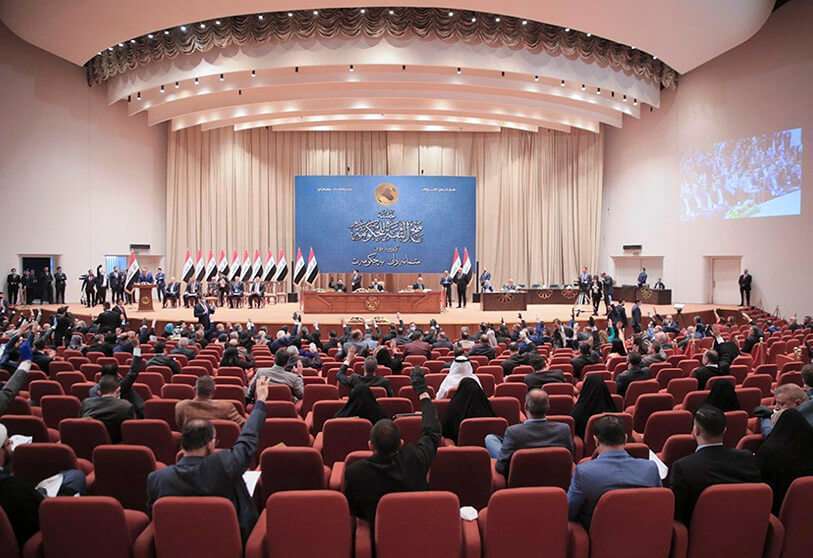
The health crisis resulting from the coronavirus pandemic is arguably the most pressing crisis facing the country. Iraq shares a border with Iran and, to a lesser extent, with Turkey, the two countries where the pathogen has spread most extensively throughout the Middle East region. In comparison with these two countries, the figures recorded by Iraq are fortunately quite low.
According to official statistics, there are no more than 2500 positive cases and only just over 100 deaths. Taking these data into account, at least for the moment, the virus has had a very moderate impact in terms of health issues.
However, at an economic level, the situation becomes much more complicated. The arrival of the coronavirus has generally tended to aggravate existing problems in many countries in this area. The almost total shutdown of various productive sectors, trade, transport, consumption, etc., has deepened a situation of economic hardship that was already present before the advent of the pandemic.
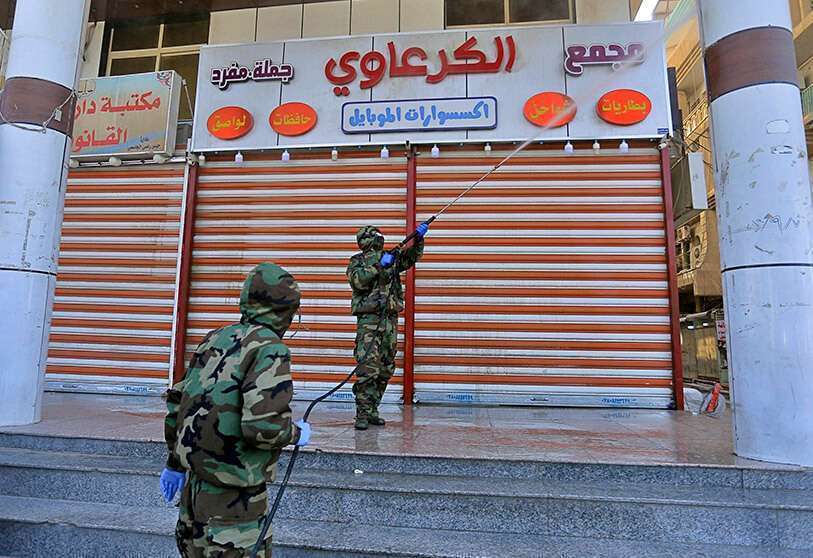
The Iraqi economy is relatively undiversified and has been highly dependent on oil exports for decades. Black gold, which was already depreciating before the impact of the pandemic, is now at an all-time low. The economic standstill has left the value of crude oil in the ground, which has been a very hard blow to the battered Iraqi productive fabric.
The OPEC+ group has tried to do its bit to alleviate, at least minimally, the situation that the country is going through. At the beginning of April, oil exporters and their partners agreed on a drastic cut in their production in the hope that, by reducing their supply, the raw material could be revalued. Iraq, which has often been exempted from such reductions, will also have to make an adjustment, although this will not be as pronounced as that undertaken by other countries with larger reserves.
In any case, the decline in hydrocarbon revenues seems to be long in coming. A recent report by the US financial firm Morgan Stanley suggests that world demand for oil will not recover its pre-pandemic levels until the end of 2021. Whether or not the prediction holds true, for countries such as Iraq, which are almost totally dependent on oil exports, particularly tough months lie ahead.
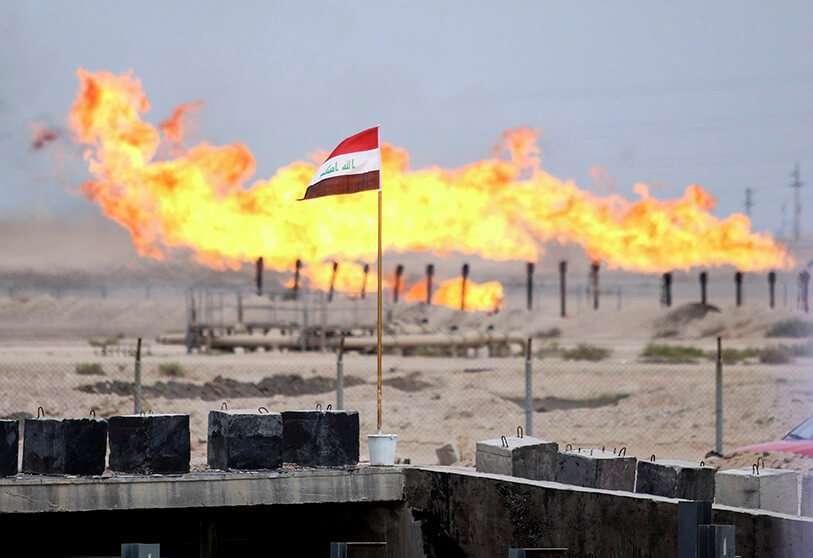
Economic hardship has led hundreds of thousands of Iraqis to take to the streets for months to condemn the general deterioration in their living conditions and the deterioration of public services.
Citizen protests soon took on a political dimension as well. The current of protest turned against a political class that many consider corrupt and locked in a bubble; an elite locked in its own sectarian divisions that, over decades, has not focused on solving specific problems.
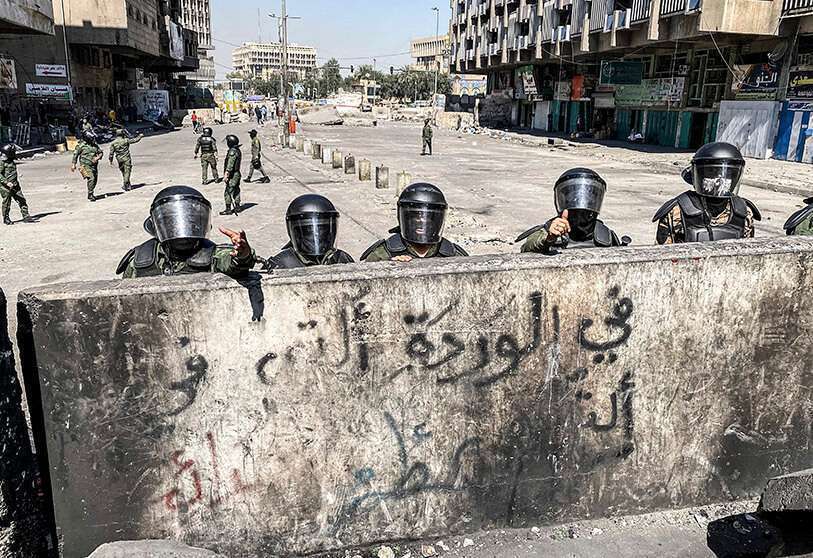
Some rallies, especially at the beginning of the riots last fall, turned violent. Hundreds of people were killed by security forces. Then-Prime Minister Mahdi was forced to resign from office because of his inability to articulate a response to the wave of public outrage that was upon him.
Of course, some have tried to take advantage of this situation of discontent. Influential Shiite clerics, such as Ayatollah Ali al-Sistani, supported the protesters unreservedly, making their demands their own in an attempt to expand their influence and, therefore, that of Iran.
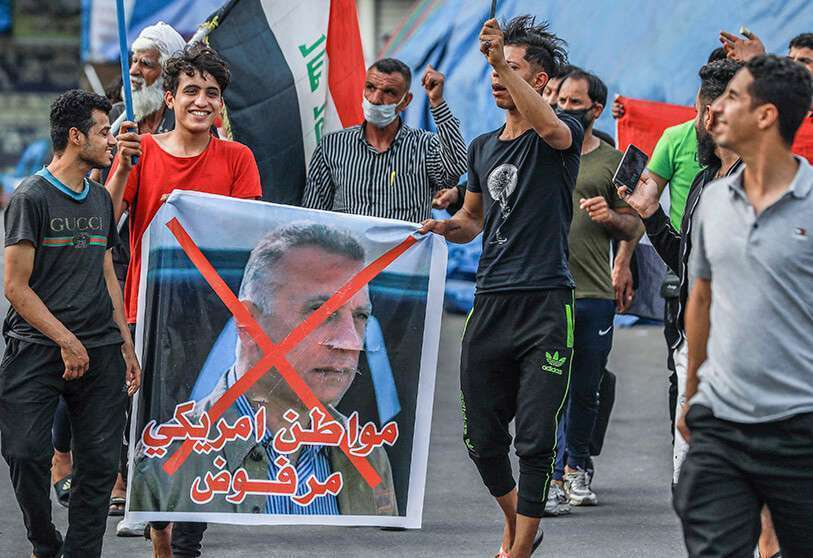
Indeed, the eastern neighbours have taken on a very important role in Iraqi political life. In recent months, taking advantage of the power vacuum in Baghdad, Tehran has gradually built up a network of political, social and territorial support that is favourable to its interests.
How has he done this? In addition to having the support of some of the most prominent political groups in Parliament, Iran has deployed numerous armed groups over Iraq that have been a very important destabilising factor for the country. Among the most important are the People's Mobilization Forces (PMF), Usbat al-Thairen (literally, 'Revolutionary League') and the militias associated with Hezbollah, which in Iraq take the name of Kata'ib Hezbollah.
It should be remembered that, in Iraq, about two thirds of the population profess the Shiite tradition of Islam, so that a large part of its territory is fertile land for the establishment of groups like the previous ones, which try to win over the population by reaching out where the state cannot go.
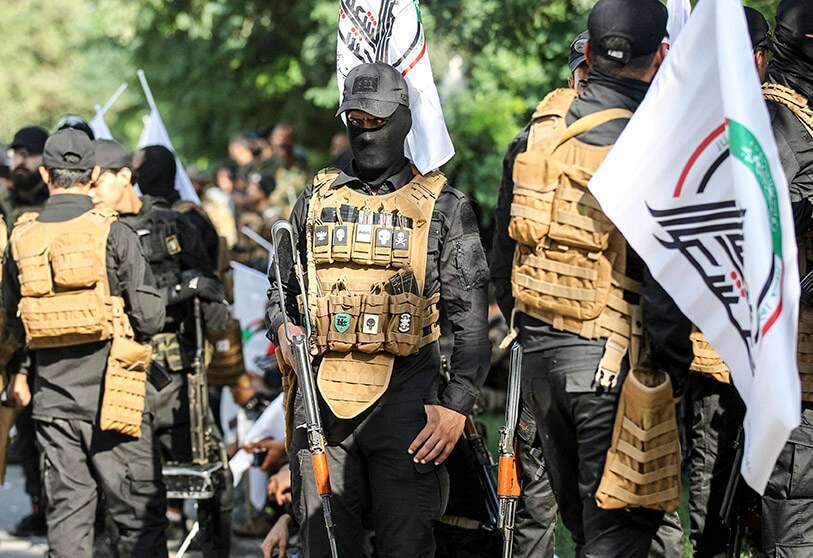
What is the counterweight to their action? Until now, the Iraqi Armed Forces have been assisted by the international coalition led by the US Army, which has suffered numerous skirmishes by Shiite militias. In response, a campaign of air strikes has been mounted with the aim of undermining the strength of the pro-Iranian fighters. One such attack earlier this year killed Iranian General Qassem Soleimani, commander of the Quds Forces of the Revolutionary Guard, and Abu Mahdi al-Muhandis, leader of the PMF.
However, the Iraqi Parliament voted, at the beginning of the year, coinciding with the escalation between the US and Iran, in favour of the departure of the troops from Washington, which will begin to take place next June. Beyond the negotiation process, which is in itself a short-term challenge, it remains to be seen in what situation the country will find itself once the international forces have withdrawn their troops.
With or without a military presence on the ground, the geopolitical tensions between the United States and its allies and Tehran are not likely to disappear, and Iraq will continue to be in the middle of the two. If, finally, such a withdrawal occurs, it is likely that Iran will continue to press and try to fill that void, as it is already doing in other countries in the region such as Syria and Lebanon.
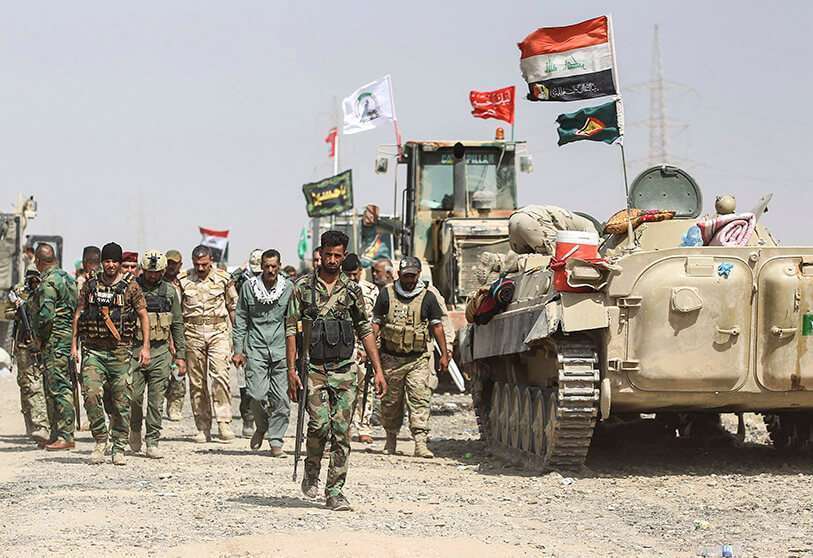
The geopolitical dispute between Iran and the United States, so faithfully embodied in recent months in Iraq, is not the only territorial danger lurking in the country. In the same way that the Iranian militias have taken advantage of the political interim situation that the country is going through, so has Daesh.
Despite the fact that the terrorist group has lost much of its territorial presence and also its most charismatic leader, the cleric Abu Bakr al-Baghdadi, it has demonstrated its resilience and versatility in adverse circumstances. As al-Qaeda experienced in its day, Daesh has mutated into an organisation without a monolithic structure and, therefore, much more difficult to detect.
In recent months, on both sides of the Syrian border, the group has been restoring some of its former power and operational capacity in many rural areas. A recent analysis by the Center for Global Policy's think tank assures that the entity has been able to retain within its ranks the combatants best suited to carry out its current insurgent strategy. Among the targets of their attacks are precisely the armed groups financed by Iran and also the patrols of the Iraqi Armed Forces.
The Center for Global Policy's analysis warns that, from their positions in the north and west of the country, Daesh's combat units are gradually gaining ground towards urban environments and, more worryingly, showing increasing coordination in their activities.
The war in Syria is another risk for Iraq. As fighting in the neighbouring country intensifies, given the extreme porosity of the border, the action of jihadist groups fighting Bachar al-Asad under the orders of Turkey may constitute a direct threat to the already unstable situation in Iraq's westernmost provinces. If necessary, entities such as Hayat Tahrir al-Sham or the Organization of Guardians of Religion, associated with Al-Qaeda, can establish connections with Daesh's operatives, which could represent a reinforcement of the terrorist networks in both countries.








